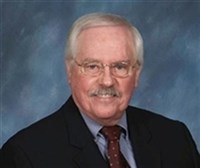Specialists
Rev. Trey Comstock, III
My ministry journey began at the age of 15, when I became the sound tech (and terrible background singer) of my youth group’s praise band. From there, it’s been quite a journey. I studied Theatre and Political Science at the College of William and Mary and hold a Master of Education from George Mason University, a Master of Public Health from Emory University, and a Master of Divinity, also, from Emory University. In between semesters, I worked as an international missionary and researcher, primarily in Kenya and Paraguay with shorter term pieces all over the place. I’ve been a playwright, worship media technician, middle school special education teacher, researcher, documentary film maker, missionary, and, finally, pastor. Grace church is the fifth congregation that I’ve had the joy of serving. Before coming to Palestine, I was the pastor at Lexington UMC and Blue UMC, in Lexington and Blue, Texas. Prior to that, I was the founding Associate Pastor of CrossRoads UMC in Pearland, Texas, and the Pastor-in-Charge at Smith Chapel UMC in Tunnel Hill, Georgia.
In a previous iteration of my life, I worked as a public health researcher out of the Religion and Health Collaborative at Emory University and earned my Master of Public Health. My research focused specifically on how churches can be involved in improving health outcomes in their communities In Kenya, this meant churches being the provider for HIV medication and running after school programs. In Paraguay, it meant being involved in fighting poverty and social isolation. In Atlanta, Georgia, it meant churches getting involved in teaching effective sexual and reproductive health education. What the program and needs are look different in each community, but the techniques for discerning what the most pressing issues are and developing an effective program are the same the world over. I can lead a church through this process of data collection, determining needs, deciding the church’s role, and building a health ministry that can improve health outcomes in their community.
Rev. B. T. Williamson
Rev. B. T. Williamson retired from active ministry in July of 2020 after 53 years of service in Executive Pastor roles, Senior Pastor leadership, Superintendent of the Houston South District, Director of Ministerial Services, Director of the Center for Clergy Excellence, and Assistant to the Bishop. A native Texan, who grew up in a parsonage family and lived across the breadth of the Texas Annual Conference, he holds degrees from the University of Texas and Southern Methodist University and pursued additional studies in Communication Arts at the University of Wisconsin.
For the last twenty-two years Rev. Williamson’s career focused on strategic planning, leadership formation, supervision, and administration. His service in the Center for Clergy Excellence helped establish standards for the professional development of clergy, interim ministry services, and one of the strongest benefit programs in the denomination. While in the position of Assistant to the Bishop, Rev. Williamson directed the Annual Conference gathering, coordinated the work of the Cabinet, facilitated the operations of the Core Leadership Team, and supported the bishops’ objectives related to boards, legal, personnel, fiscal, and strategic concerns.
Rev. Williamson was the co-founder of Benevolent Missions International, a non-profit organization dedicated to providing needed ophthalmic care to the underserved in Belize and Fiji. Current avocational interests include serving on the boards of Benevolent Missions International, Methodist Retirement Communities, Wiley College, the Transitional Intentional Interim Ministry Specialists Association, and he continues his membership on the Texas Annual Conference Investment Committee.
Ministry related to the health and welfare of individuals has always been at the heart of the church’s response to special circumstance. From hospitals to homes for children to retirement services to nursing scholarships to adoption and foster care – whether it is a local or international need, we take the love and compassion of Christ to those settings. It has been my privilege to be engaged in multiple health ministries. In the local congregation I worked with the Institute of Religion to help promote parish nurses in local congregation settings. The Pastoral Care Specialist program through the Samaritan Counseling Center provided additional skills for congregant relationships. Within the annual conference my tenure as the Director of Group Health Benefits provided an opportunity to create the clergy Wellness Program, which measurably improved the health of clergy and their families and controlled medical expense increases. Ten years as an Advisory Board member of Houston Methodist Hospital plus membership on the Spiritual Care Committee instilled an awareness of institutional trends in physical and spiritual care. Additionally, participation on the Methodist Retirement Communities Board led to a greater understanding of our aging population and types of communities it will take to meet their needs. But the highlight of my experiences in health ministry would have to be my association with Benevolent Missions International (BMI), a foundation dedicated to providing ophthalmic services in countries where the medical service is not available, or it is simply not affordable. In 1992 I helped co-found BMI as a non-profit foundation, which has now been present in eight countries with volunteer medical personnel, construction of medical facilities, and the education of health workers to provide ophthalmic service.


